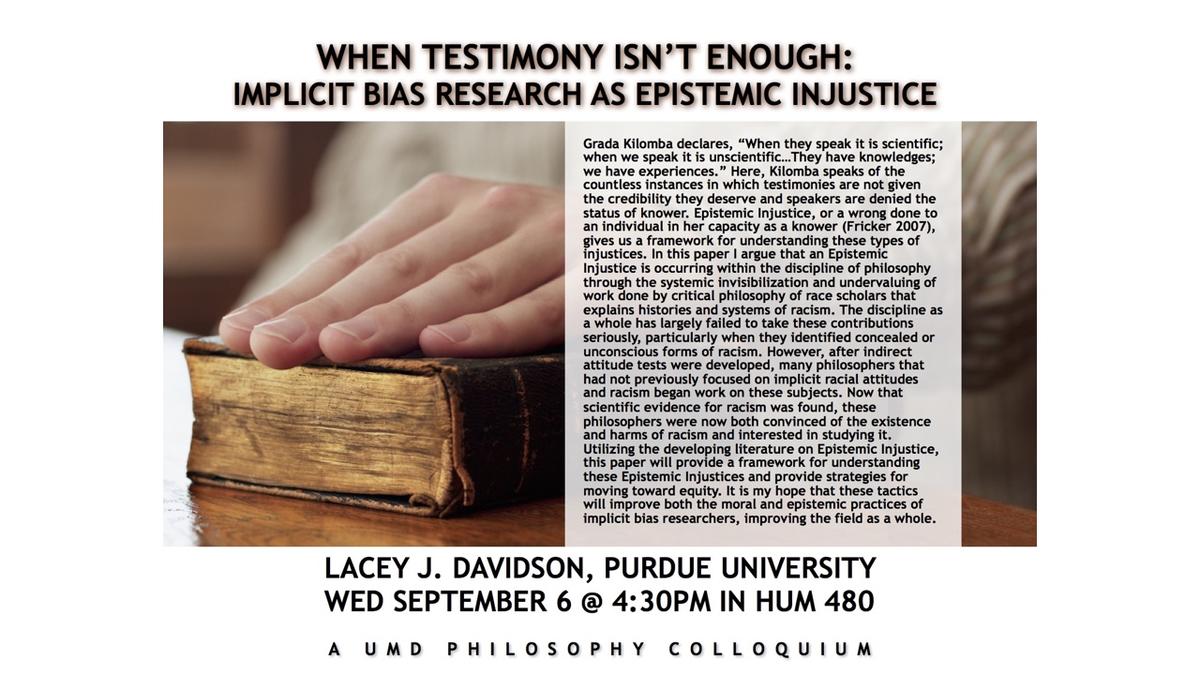When Testimony Isn't Enough: Implicit Bias Research as Epistemic Injustice
presented by Lacey J. Davidson, Purdue University
Grada Kilomba declares, “When they speak it is scientific; when we speak it is unscientific…They have knowledges; we have experiences.” Here, Kilomba speaks of the countless instances in which testimonies are not given the credibility they deserve and speakers are denied the status of knower. Epistemic Injustice, or a wrong done to an individual in her capacity as a knower (Fricker 2007), gives us a framework for understanding these types of injustices. In this paper I argue that an Epistemic Injustice is occurring within the discipline of philosophy through the systemic invisibilization and undervaluing of work done by critical philosophy of race scholars that explains histories and systems of racism. The discipline as a whole has largely failed to take these contributions seriously, particularly when they identified concealed or unconscious forms of racism. However, after indirect attitude tests were developed, many philosophers that had not previously focused on implicit racial attitudes and racism began work on these subjects. Now that scientific evidence for racism was found, these philosophers were now both convinced of the existence and harms of racism and interested in studying it. Utilizing the developing literature on Epistemic Injustice, this paper will provide a framework for understanding these Epistemic Injustices and provide strategies for moving toward equity. It is my hope that these tactics will improve both the moral and epistemic practices of implicit bias researchers, improving the field as a whole.

Publication Date